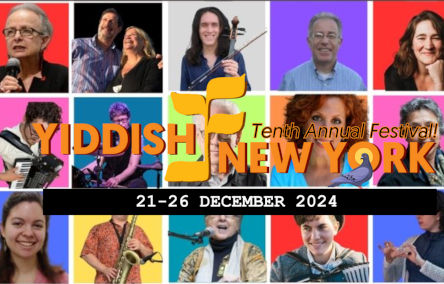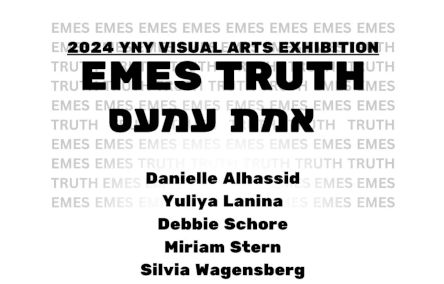On February 13, 2025, the informal group Yiddish.Berlin held a Valentine’s Eve celebration: an evening of Yiddish poetry entitled “Libebriv” (Love Letters). Can Valentine’s be also Jewish? Osian Evans Sharma, a Yiddish teacher from England, and Michelle Bernstein, a local Berlin-based Yiddish researcher, who came up with the idea of this event, are convinced that it can!
The participants mainly recited their freshly written Yiddish poems, as well as many works by well-known 20th modernist female poets. Poetic and musical undertakings are a common activity of Yiddish.Berlin; for over five years, the group has already been organizing many similar evenings.
A couple of words about the participants:
Jake Schneider is very much a Berlin poet. His works are infused with fantastic themes and formal plays with language subtleties.
Yael Merlini is an Italian-language poet who started writing in Yiddish two years ago. She writes mystical and erotic songs full of shadowy and sensual images.
Jordan Lee Schnee, like Merlini, started writing poetry in his native language (English) before Yiddish. Besides his own texts, he read two poems by Debora Fogel. He translates her poetry into English and he was the editor of her poetry collections in Spanish and Portuguese translations.
Two newcomers also appeared. Luise Fakler, a musician and historian, recited her own Yiddish poem for the first time. Daria Ma, a poet who writes in Russian and experiments with mixed language poetry, also presented a poem she wrote entirely in Yiddish especially for this event.
I, Katerina Kuznetsova, won’t talk here about my own works — you can read them online following this link, along with all the other texts recited during this Valentine’s evening.
The recitations were alternated by pieces of music. The composer and musician Zhenja Oks performed his compositions he created to Celia Dropkin’s, Itzik Manger’s and Olexander Beyderman’s lyrics.
The evening took place at the Café Chagall. It was also meant to signal a new season of Yiddish programs. The group’s new project “Nu? Yiddish in all art forms”, curated by Jake Schneider, is to be started in March. There are also going to be a series of open mics for all Berliners who are involved in Yiddish creativity.
Katerina Kuznetsova, Berlin
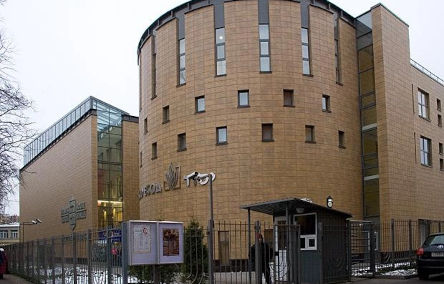
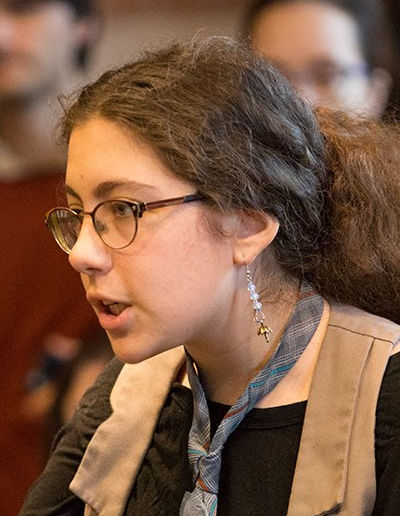
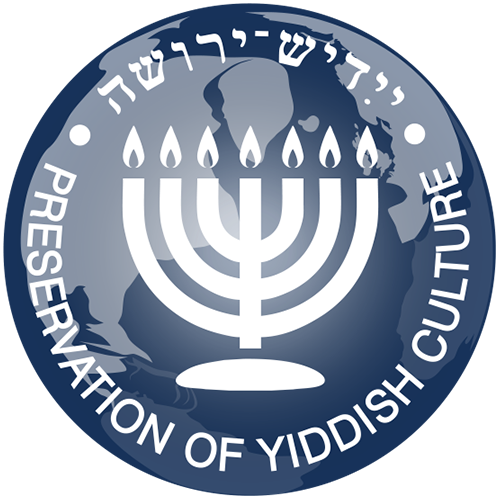
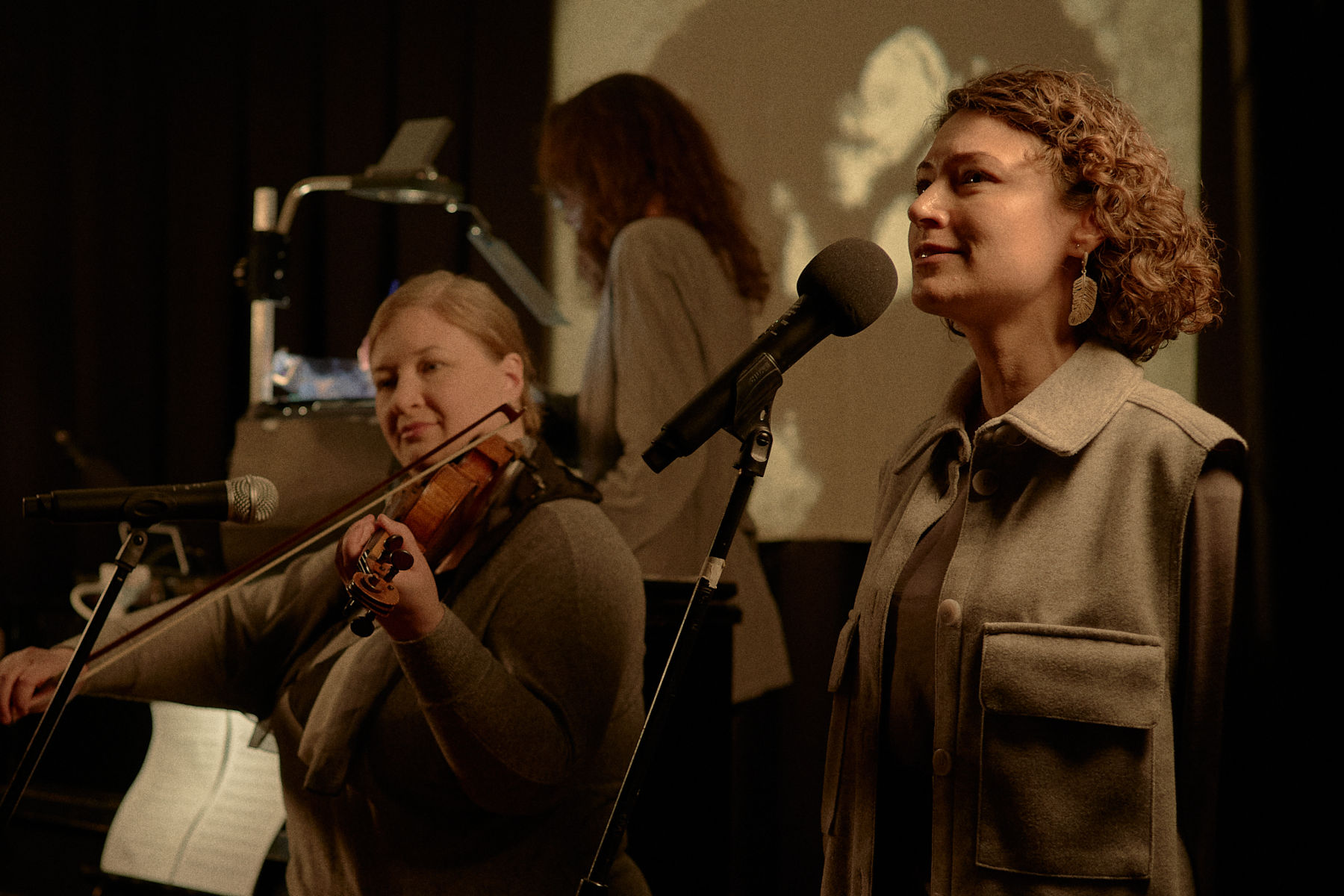
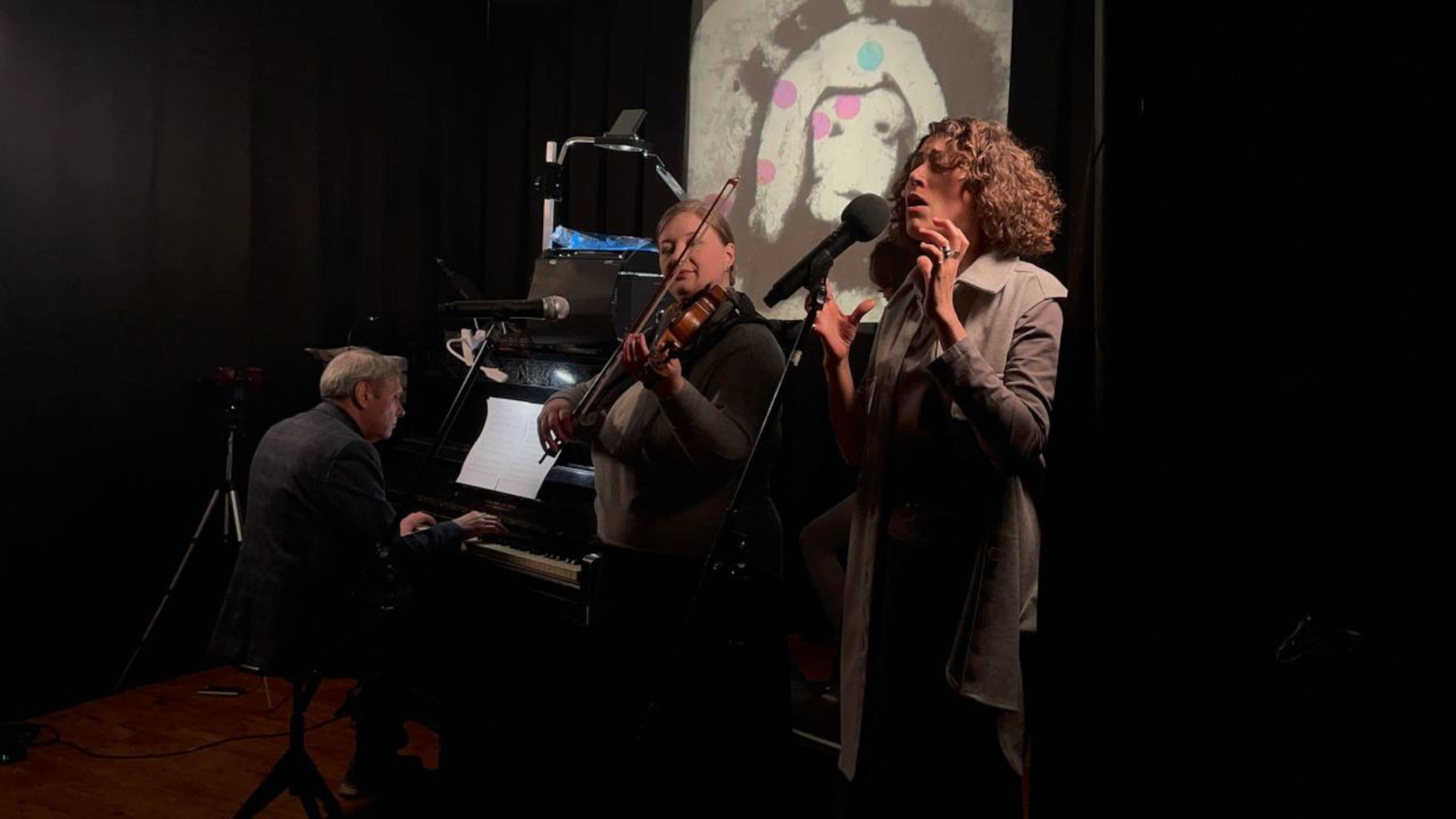
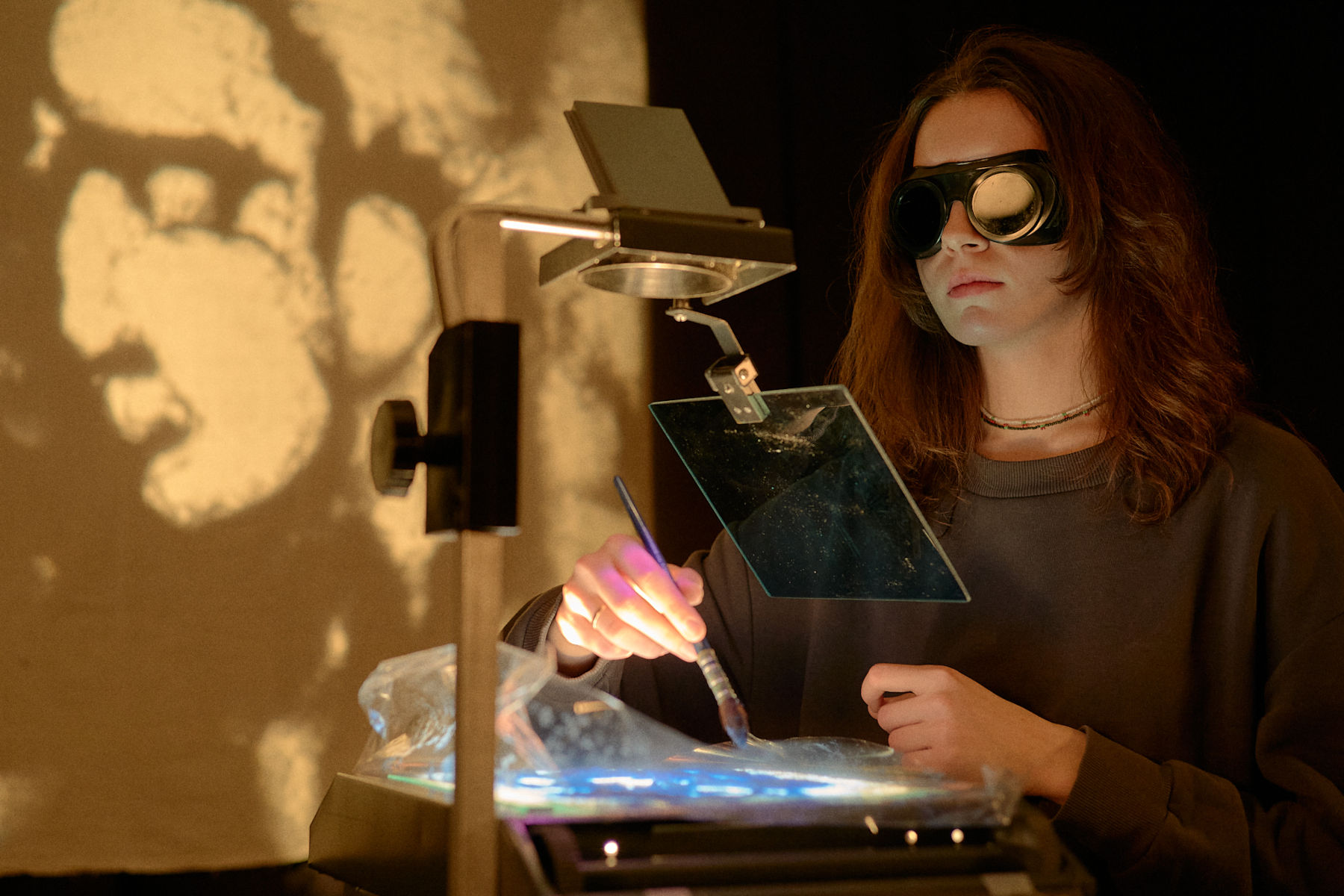
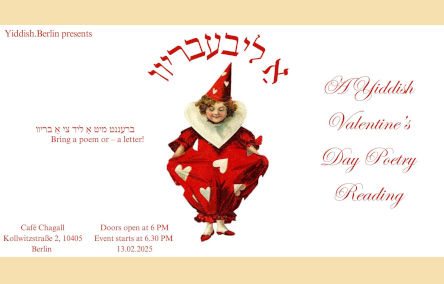
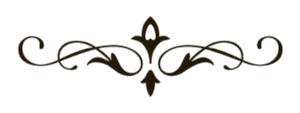
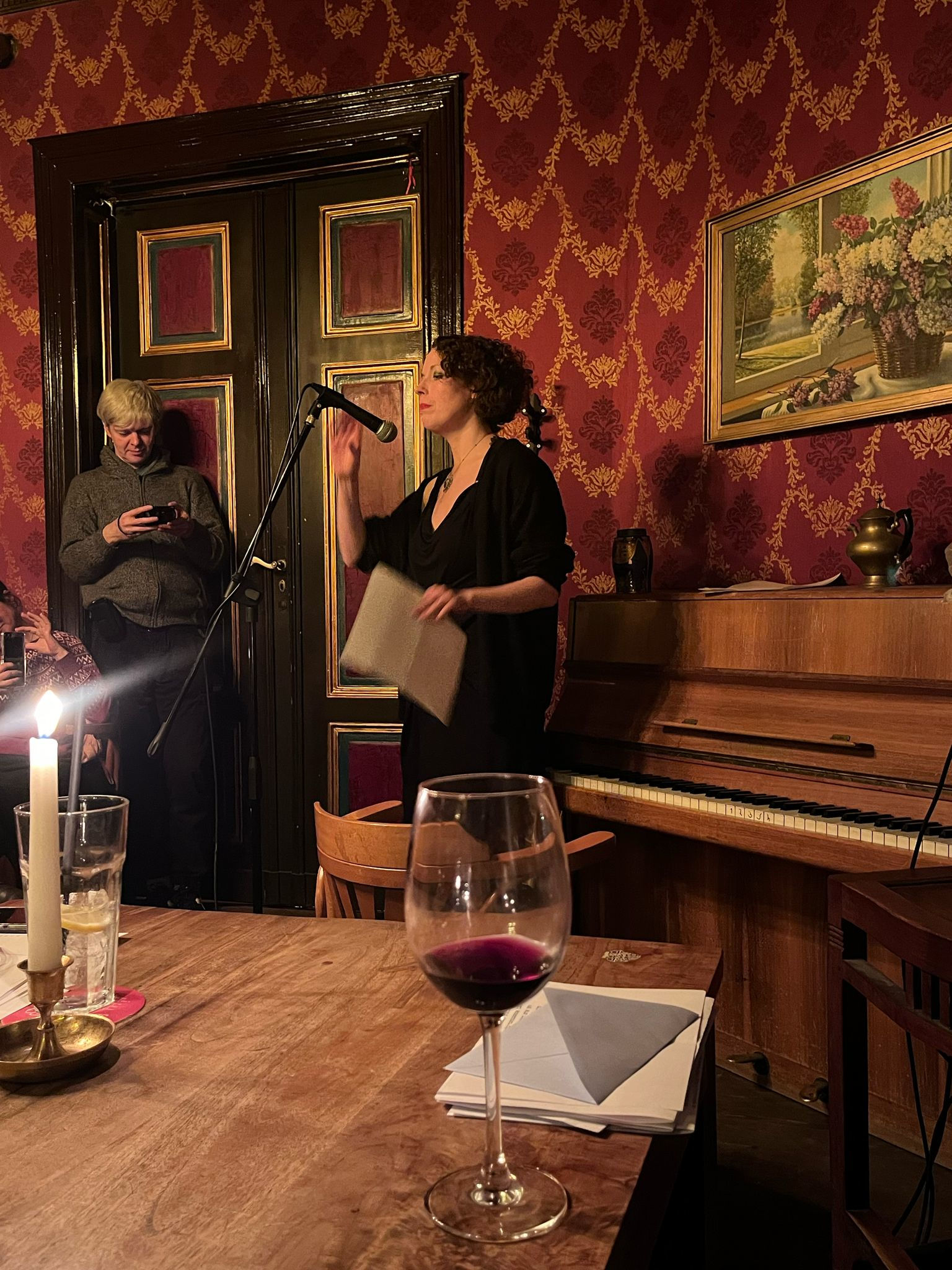
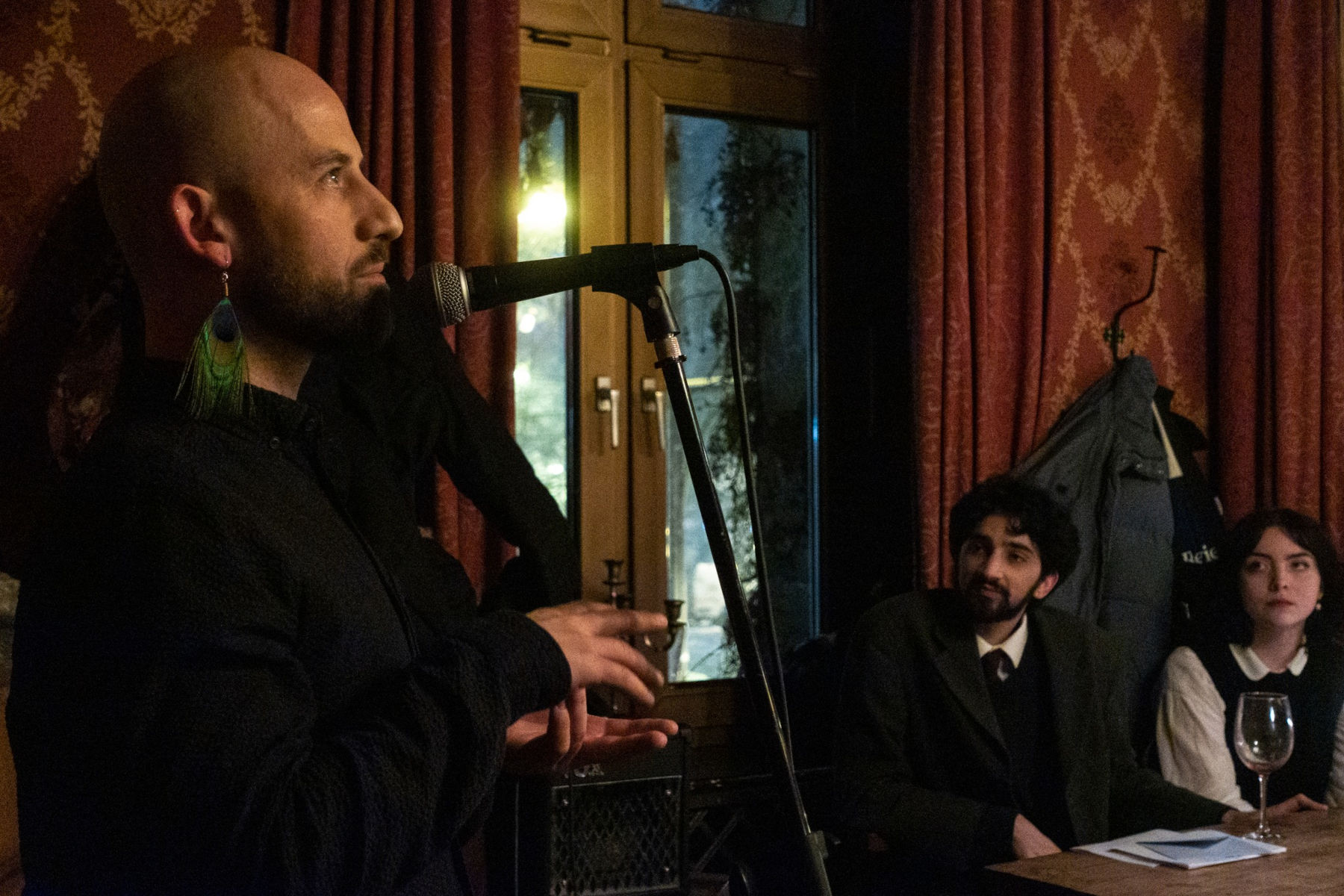
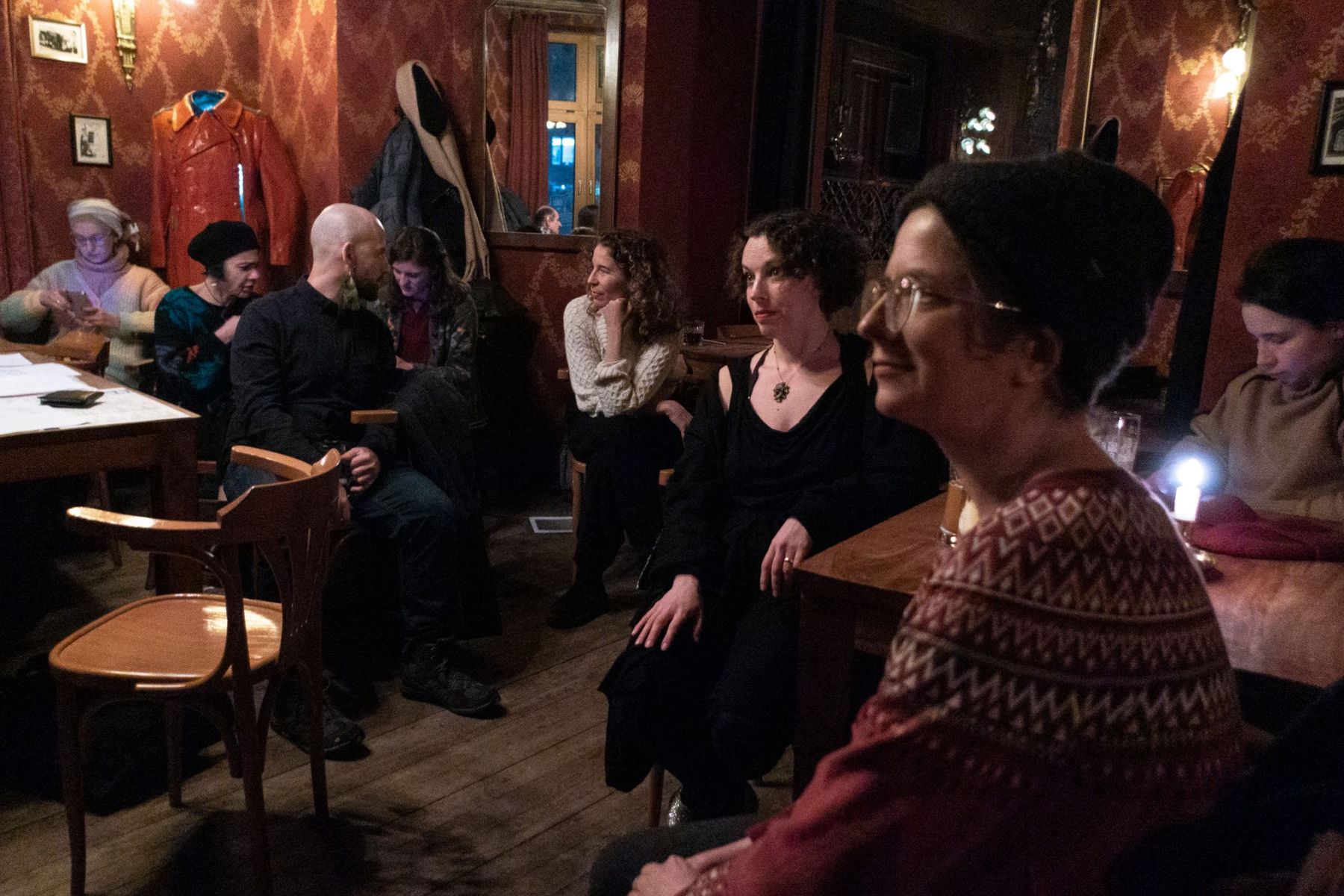
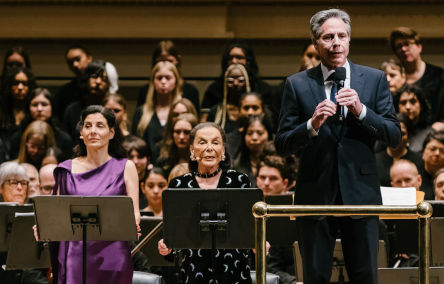
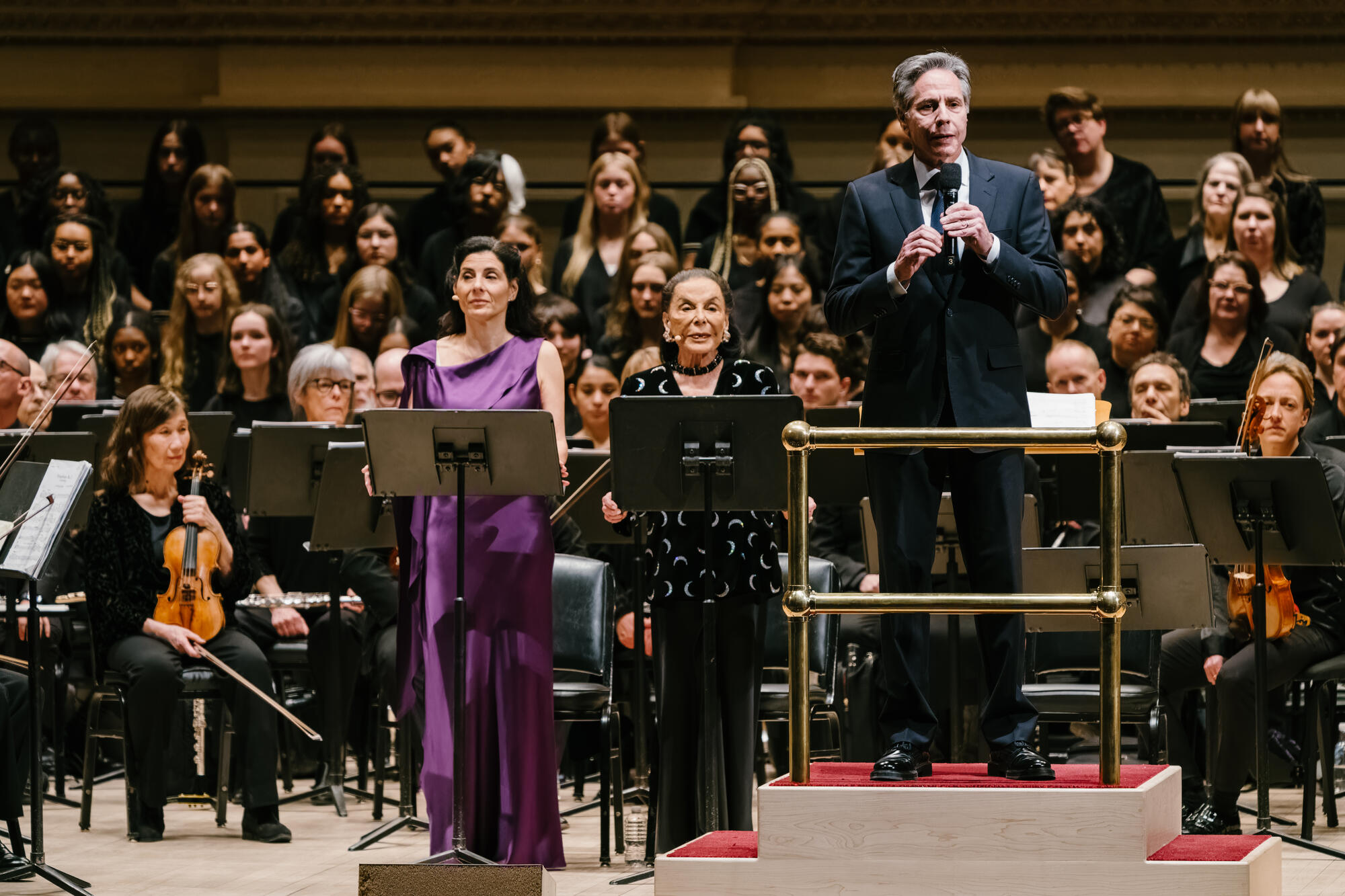
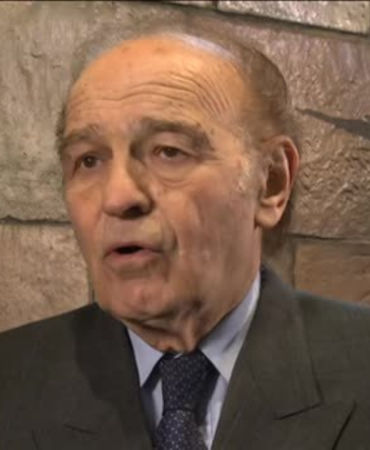

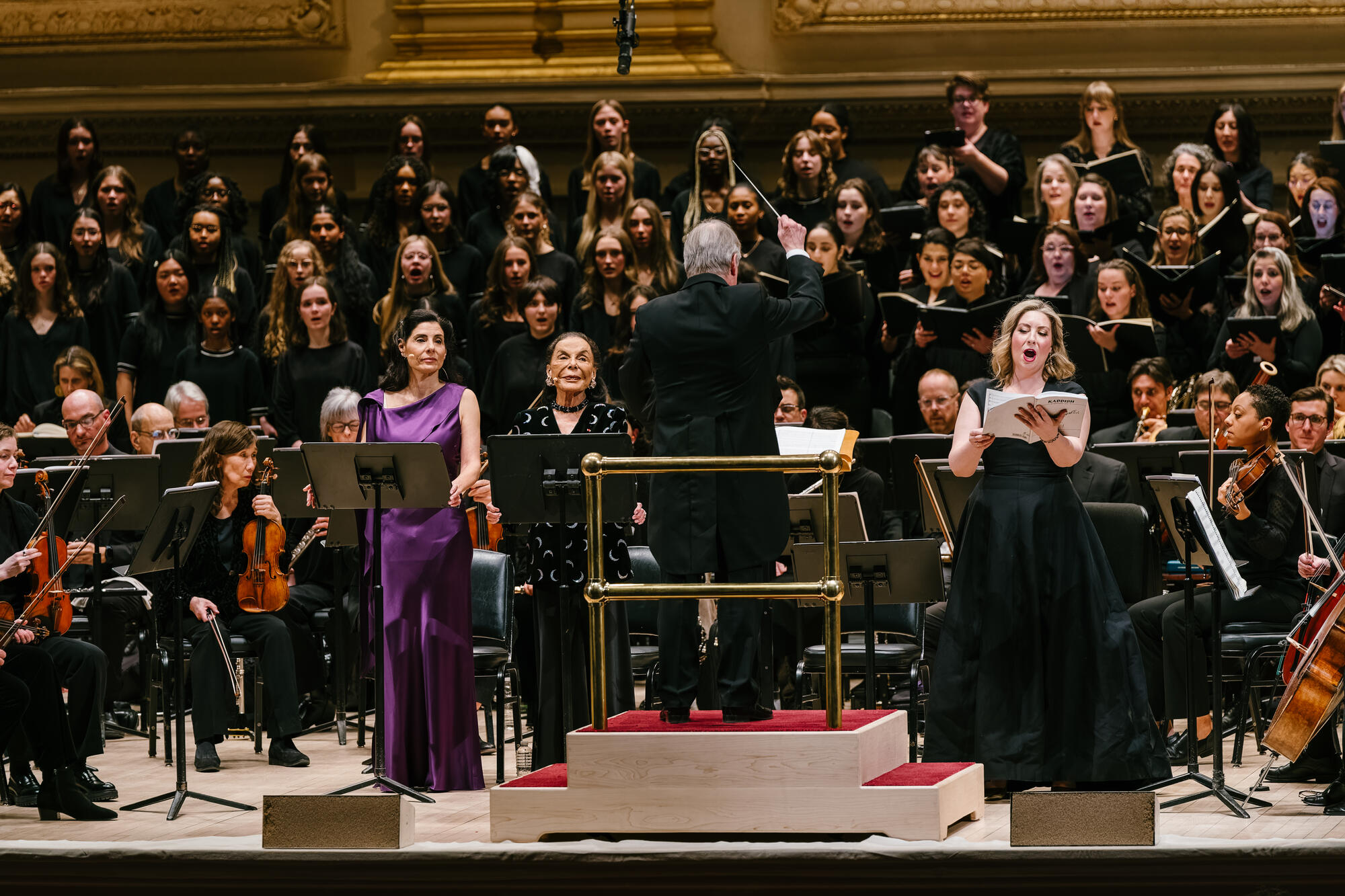
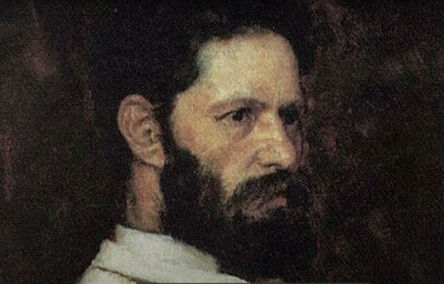
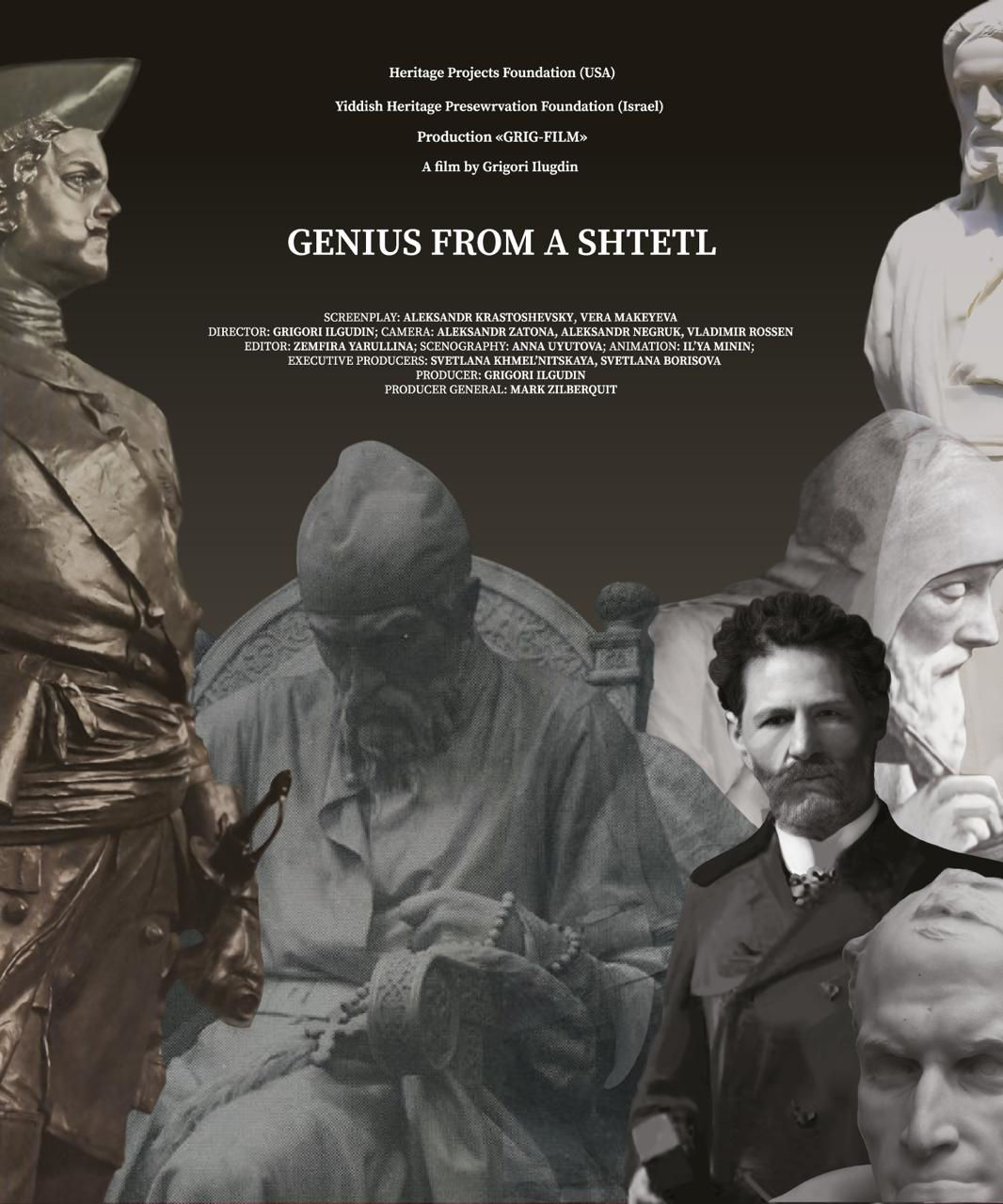 Grigori Ilugdin’s Russian-Yiddish film Genius from a Shtetl, a documentary about the famous sculptor Mark Antokolsky, is now publicly available online with English subtitles. It contains several 3D-animated scenes in Antokolsky’s native Lithuanian dialect of Yiddish. The director expresses his deep gratitude to the Heritage Projects Foundation (USA) and Yiddish Heritage Preservation Foundation (Israel) who supported the documentary.
Grigori Ilugdin’s Russian-Yiddish film Genius from a Shtetl, a documentary about the famous sculptor Mark Antokolsky, is now publicly available online with English subtitles. It contains several 3D-animated scenes in Antokolsky’s native Lithuanian dialect of Yiddish. The director expresses his deep gratitude to the Heritage Projects Foundation (USA) and Yiddish Heritage Preservation Foundation (Israel) who supported the documentary.